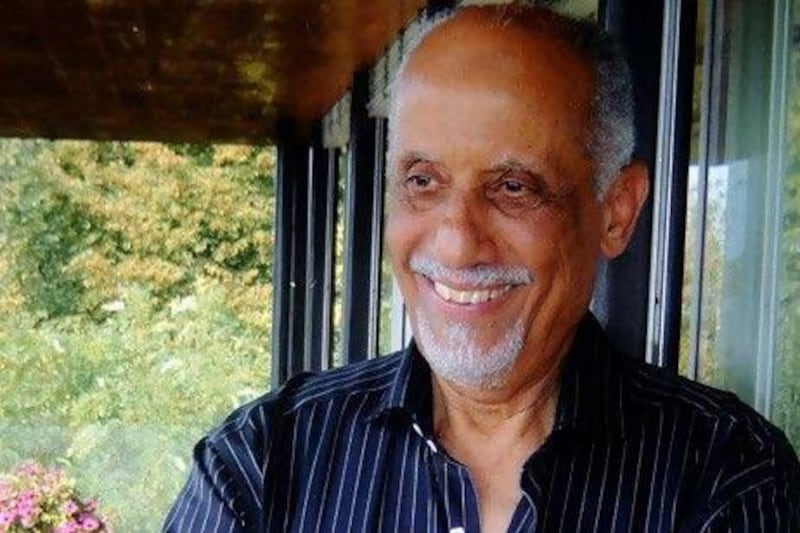CAIRO //Egyptian president Mohammed Morsi is struggling with a tide of religious conservatism and the problem of restoring security without resorting to dictatorial tactics, said a senior Muslim Brotherhood official who has lived in exile from Egypt for more than five decades.
"My opinion is that the majority of the Brotherhood's opinions comply with the trend of freedom and the correct way of government," said Youssef Nada, who led the Brotherhood's foreign affairs bureau for 25 years from Europe. "But the problem is a matter of culture. They are in a culture which is used to be built by dictators. When you give more freedom, then you have a security problem. When you prevent freedom, you are a dictator."
Mr Nada, 82, in a telephone call from his villa in the Italian enclave of Campione D'Italia located within Switzerland, spoke on the eve of the publication today of his biography Inside the Muslim Brotherhood: The Truth about the World's Most Powerful Political Movement in the US.
The book is largely a defence of the Brotherhood's way of thinking and of Mr Nada's own often-secret work to negotiate peace in the Muslim world since becoming a member of the group in 1948. It details his account of what he describes as the unfair sanctions against him by the US and European countries in the aftermath of the September 11, 2001, attacks on the World Trade Center towers and the Pentagon.
But the book also represents a rare window into the development of one of the most influential political groups in the region today and its longer-term vision, especially in the Arabian Gulf.
At its core, the Brotherhood is an "organisation based on the ethics of the Islamic religion", with the goal of helping "people comply with the ethics in their life, with teaching them until they, themselves, implement it in their life socially and economically and morally, with their soul and mind", according to Mr Nada.
"There are other places ready for the next coup, but the next revolution will probably be in Saudi Arabia and the Gulf," Mr Nada says in the book. "Those countries are vulnerable."
Clarifying his thoughts in an interview, Mr Nada emphasised that the Brotherhood "believe in horizontal growth, not vertical".
"We want to export Islam, not revolution," he said.
The Muslim Brotherhood is against the concept of revolution because of its destructiveness, he said.
"We are builders, not demolishers."
The Muslim Brotherhood does not want to imitate Iran in creating an Islamic republic in Egypt, but believe in creating a democracy that does not contradict Sharia law.
"When you say normal democratic rule but without contradicting Sharia, you are open to a different interpretation of democracy as well as different interpretation of the Sharia," he said in the book.
Therein lies the problem in Egypt, he said. Over three decades, the Mubarak regime encouraged the ultraconservative strain of Islamic thinking - in large part, brought from Saudi Arabia - to counter the Brotherhood's influence. Since the uprising that toppled the old government, the Salafists have become a major political force that is trying to make Egypt into a more rigidly Islamic state.
"He encouraged the Salafis to confront the Brotherhood and he gave them more possibility," Mr Nada said. "They were in the poor areas and they were allowed to use the mosques when the Brotherhood was prevented from doing that." Mr Nada said he joined the Muslim Brotherhood in 1948 after watching a group of Brothers stop a fight from escalating on the streets of Alexandria. He was jailed in 1952 for nearly two years along with thousands of other members of the group after Gamal Abdel Nasser began cracking down on the Brotherhood. In 1960, Mr Nada left Egypt to begin a career as a businessman and eventually built up an empire of cement and industrial businesses that spanned the Middle East and North Africa. His devout belief in the principles behind the Brotherhood and connections across the region made him a valuable operative for the group.
He became the "shadow statesman" of the Brotherhood, travelling far and wide to mediate disputes in the Arab world.
He attempted to negotiate a peace between the Afghan mujaheddin and the Soviet Union, proposing that the Iranians serve as mediators. He visited Saddam Hussein after Iraq's invasion of Kuwait, proposing that a security force made up of soldiers from Muslim countries replace Iraqi soldiers before allowing elections in Kuwait.
However, all this work - and other projects that he refuses to divulge because of their sensitivity - was done in the shadows. It was not until 2001 that he became an internationally known figure.
After the attacks in New York and on the Pentagon, the US government accused him of being a major financier of Islamic extremist groups, including Hamas and Al Qaeda.
Mr Nada was placed on a United Nations blacklist and the Islamic bank he had set up, Bank Al Tawqa, went into liquidation. He denied all the accusations and fought back with his own lawsuits.
In September 2009, he was formally removed from the United Nations list of "individuals tied to Al Qaeda" and last month the European Court of Human Rights ruled that Switzerland violated Mr Nada's human rights by restricting his movements because of the sanctions.
He still remains on the US department of treasury's list of Specially Designated Nationals and Blocked Persons. Mr Nada has not returned to Egypt in decades for fear of arrest. In 2008, an Egyptian military court sentenced him in absentia to ten years in prison for allegedly financing the Muslim Brotherhood.
Mr Morsi officially pardoned Mr Nada, along with 25 others, at the end of Ramadan. Mr Nada said he has not yet decided to return to Egypt, but added that is his intention to "die in the country where he was born".
"I'm an old man now," he said. "I'm not looking for a role. I had one for a long time ... I am putting things on the record. The Americans put my name on the screen of intelligence agencies all over the world and I had to answer. It was a reaction, not an action."
Follow
The National
on
[ @TheNationalUAE ]
& Bradley Hope on
[ @bradleyhope ]






